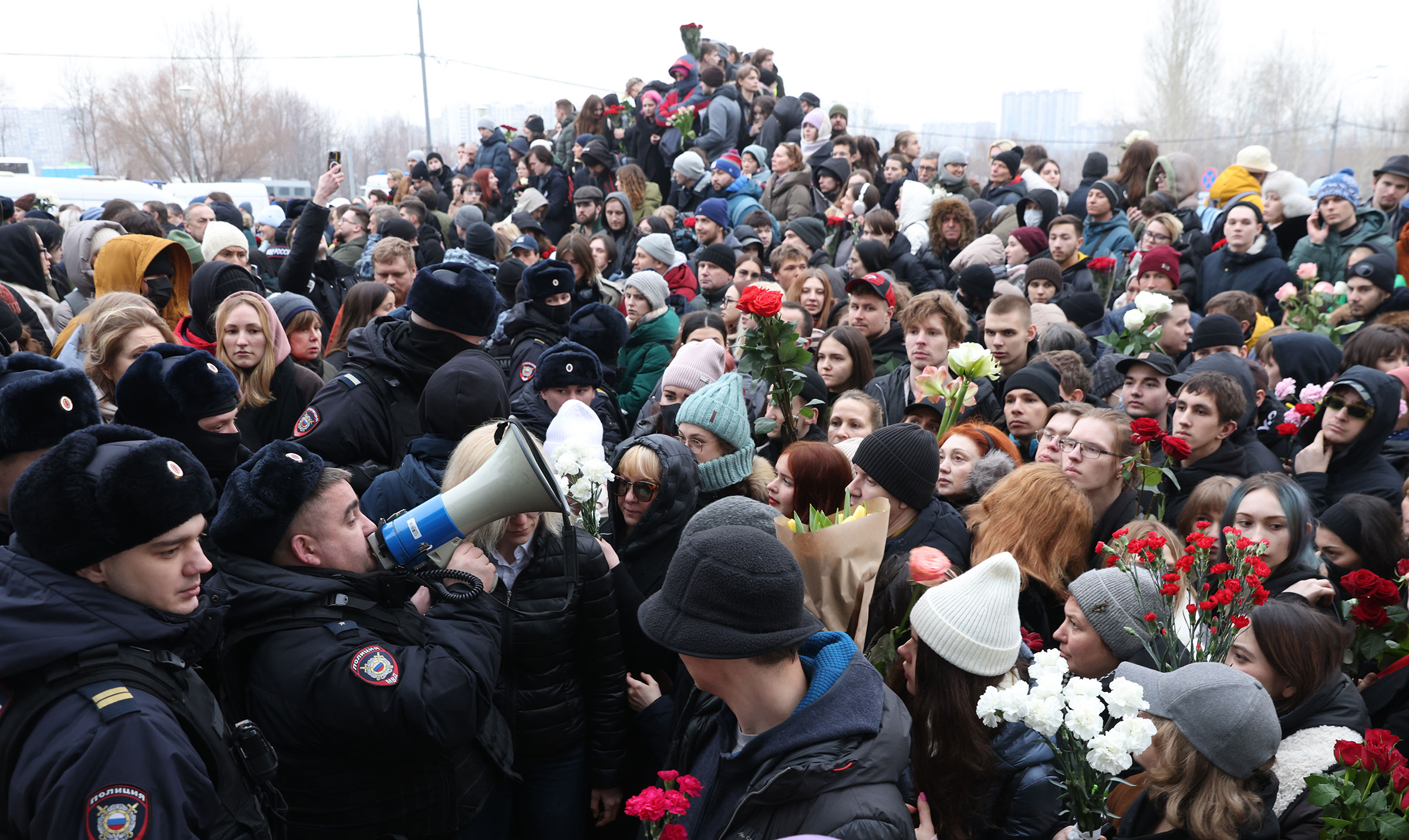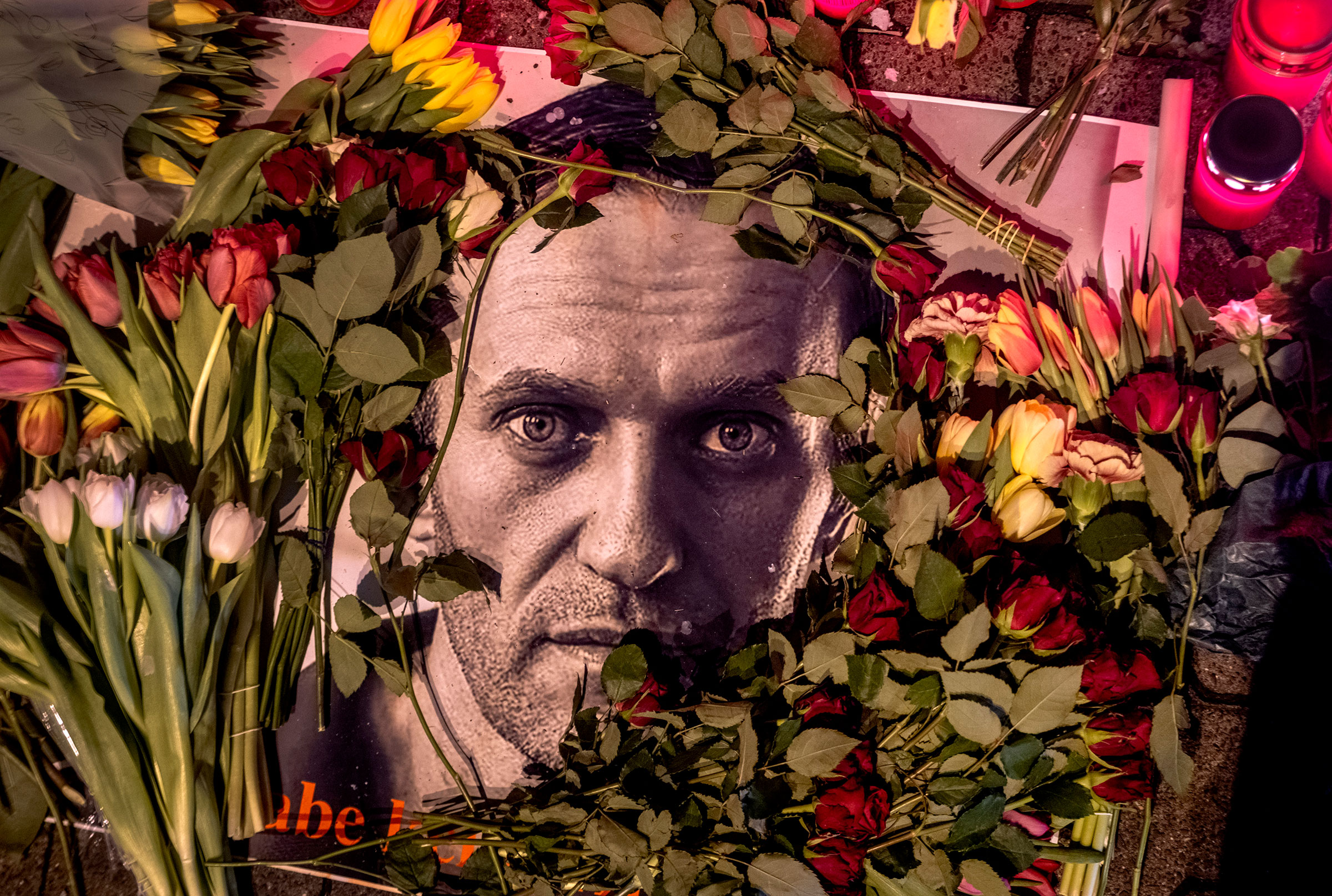In the final years of his life, Alexei Navalny developed a plan for Russia’s next presidential election. That vote is due to take place this weekend, exactly a month after Navalny’s death in a Russian penal colony, and the results will not be much of a surprise: Vladimir Putin is sure to take another six-year term in power. But Navalny, even from the confines of his prison, saw the election as an opportunity for Russians to voice their dissent, and to weaken Putin’s hold on power.
“People are afraid,” he wrote in a letter to TIME in 2021. “But their hidden politicization is growing.”
As evidence, Navalny cited the way his election strategy, known as “smart voting,” played out during the local and legislative ballots held in many regions of Russia in the fall of that year. Despite widespread vote-rigging, Putin’s party barely clung to power in several of those regions. An independent analysis of voting patterns found that it was the worst result in the party’s history. Even in Putin’s hometown of St. Petersburg, the party won only a third of the vote in the race for city council.
“Yes, they falsified the vote to steal our victory,” Navalny wrote of those results. “But the fact remains: for the first time in 20 years under Putin, people voted in such massive numbers against him and his party.”
Another measure of the strategy’s success was the furious reaction it provoked from the regime. The Kremlin moved to ban websites that used the phrase “smart voting.” It declared Navalny’s activist group an “extremist organization” and began jailing its representatives across the country. Under pressure from Russian authorities, Google and Apple removed Navalny’s Smart Voting app from their app stores before the vote.

The crackdown made it nearly impossible for Navalny’s organization to operate in Russia. Its activists fled abroad or went into hiding, while the terms of Navalny’s confinement became increasingly brutal. Guards at his penal colony locked him in a “punishment cell” for the smallest of infractions, such as a failure to properly state his name during a roll call. (The filthy cells featured a speaker that played Putin’s speeches for hours, a tacit acknowledgement, Navalny joked, that the ranting of the president counts as a form of punishment.)
Still, in the weeks before his death on Feb. 16, Navalny and his allies prepared to run a smart-voting campaign during this month's presidential ballot. Their aim was to demonstrate that opposition to Putin remains widespread, and they came up with some clever ways to achieve that. In messages smuggled out of the prison, Navalny called on his supporters to show up at their local polling stations to vote precisely at noon on election day. The tactic would set the stage for hundreds if not thousands of anti-Putin flash mobs, which authorities would not be able to disperse without hindering the vote itself.
In marking their ballots, Navalny also urged voters to choose any name other than Putin. None of the other candidates are independent; their primary role in Russia’s electoral system is to give the process a thin veil of legitimacy. But Navalny argued that turning out to vote for any of these dummy candidates would be more effective than boycotting the elections.
“The goal is not to influence the voting results, which will be falsified anyway, and it is not to support any of Putin’s puppets allowed on the ballot,” Yulia Navalnaya, the dissident’s wife, who has taken up leadership of the opposition movement since his death, wrote in the Washington Post a few days before the ballot. “Alexei wanted this to be a nationwide protest, emphasizing the illegitimacy of Putin’s election and the resistance of Russian civil society.”

He has already succeeded in unnerving the Kremlin from beyond the grave. Hundreds of people have been detained across Russia while publicly mourning Navalny’s death over the past month. Students in Moscow reported receiving threats of expulsion from their universities for attending any public rallies on the day of Navalny’s funeral.
Navalny’s longtime ally and former chief of staff, Leonid Volkov, was attacked with a hammer near his home in Lithuania on March 12, only three days before the start of voting in Russia. (Authorities in Lithuania blamed the attack on Moscow, but no arrests have yet been made.) While receiving treatment for his injuries, Volkov, who fled Russia several years ago to escape arrest, called the assault a typical “gangster’s greeting” from Putin. “We’ll keep working,” he said. “And we will not surrender.”
This weekend, no matter how predictable the results of the ballot may be, they will present Navalny’s allies with their best chance to put his political strategy into action. The ultimate goal he described in his prison letters is for Russia to hold free elections, and enough of them for democracy to take hold over time.
“Russia sorely needs at least 4-5 cycles of fair elections under the control of an independent judiciary before we finally break the vicious cycle of authoritarianism and determine, once and for all, that changes of power at every level will henceforth take place only this way.”
Throughout his career in politics, he dreamed of taking part in a presidential race like that, but the state under Putin kept him off the ballot every time. Now, a month after his death, Russian voters will get another chance to try his electoral strategy, and to test how much Navalny’s message will continue to shape political events.
More Must-Reads from TIME
- Cybersecurity Experts Are Sounding the Alarm on DOGE
- Meet the 2025 Women of the Year
- The Harsh Truth About Disability Inclusion
- Why Do More Young Adults Have Cancer?
- Colman Domingo Leads With Radical Love
- How to Get Better at Doing Things Alone
- Michelle Zauner Stares Down the Darkness
Contact us at letters@time.com
